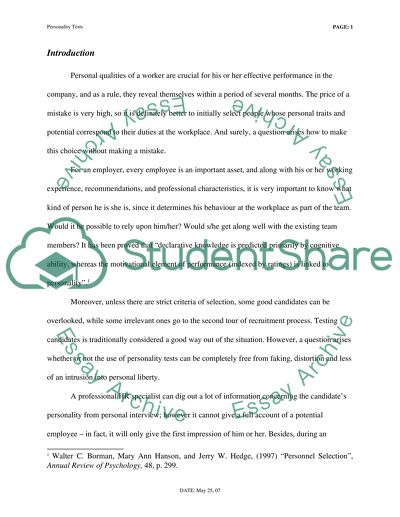Cite this document
(“'the best way to improve personality tests is to dump them'. Can the Essay”, n.d.)
'the best way to improve personality tests is to dump them'. Can the Essay. Retrieved from https://studentshare.org/miscellaneous/1540969-the-best-way-to-improve-personality-tests-is-to-dump-them-can-the-use-of-such-tests-in-business-be-made-free-from-faking-distortion-and-less-of-an-intrusion-into-personal-liberty
'the best way to improve personality tests is to dump them'. Can the Essay. Retrieved from https://studentshare.org/miscellaneous/1540969-the-best-way-to-improve-personality-tests-is-to-dump-them-can-the-use-of-such-tests-in-business-be-made-free-from-faking-distortion-and-less-of-an-intrusion-into-personal-liberty
('The Best Way to Improve Personality Tests Is to Dump them'. Can the Essay)
'The Best Way to Improve Personality Tests Is to Dump them'. Can the Essay. https://studentshare.org/miscellaneous/1540969-the-best-way-to-improve-personality-tests-is-to-dump-them-can-the-use-of-such-tests-in-business-be-made-free-from-faking-distortion-and-less-of-an-intrusion-into-personal-liberty.
'The Best Way to Improve Personality Tests Is to Dump them'. Can the Essay. https://studentshare.org/miscellaneous/1540969-the-best-way-to-improve-personality-tests-is-to-dump-them-can-the-use-of-such-tests-in-business-be-made-free-from-faking-distortion-and-less-of-an-intrusion-into-personal-liberty.
“'The Best Way to Improve Personality Tests Is to Dump them'. Can the Essay”, n.d. https://studentshare.org/miscellaneous/1540969-the-best-way-to-improve-personality-tests-is-to-dump-them-can-the-use-of-such-tests-in-business-be-made-free-from-faking-distortion-and-less-of-an-intrusion-into-personal-liberty.


